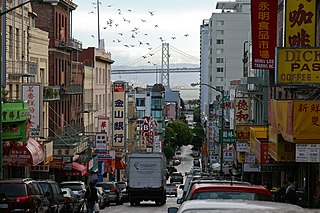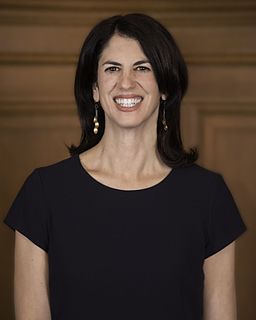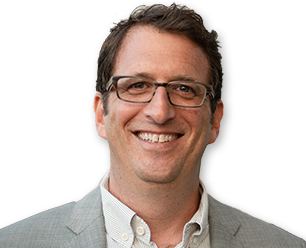Related Research Articles

Berkeley is a city on the eastern shore of San Francisco Bay in northern Alameda County, California, United States. It is named after the 18th-century Irish bishop and philosopher George Berkeley. It borders the cities of Oakland and Emeryville to the south and the city of Albany and the unincorporated community of Kensington to the north. Its eastern border with Contra Costa County generally follows the ridge of the Berkeley Hills. The 2020 census recorded a population of 124,321.

Lafayette is a city in Contra Costa County, California, United States. As of 2020, the city's population was 25,391. It was named after the Marquis de Lafayette, a French military officer of the American Revolutionary War.

San Francisco State University is a public research university in San Francisco. As part of the 23-campus California State University system, the university offers 118 different bachelor's degrees, 94 master's degrees, and 5 doctoral degrees along with 26 teaching credentials among six academic colleges. It is classified among "R2: Doctoral Universities – High research activity".

East Bay Municipal Utility District (EBMUD), colloquially referred to as "East Bay Mud", is a public utility district which provides water and sewage treatment services for an area of approximately 331 square miles (860 km2) in the eastern side of the San Francisco Bay. As of 2018, EBMUD provides drinking water for approximately 1.4 million people in portions of Alameda County and Contra Costa County in California, including the cities of Richmond, El Cerrito, Hercules, San Pablo, Pinole, Lafayette, Moraga, Orinda, Danville, Oakland, Piedmont, Emeryville, Berkeley, Albany, Alameda, San Leandro, neighboring unincorporated regions, and portions of cities such as Hayward and San Ramon. Sewage treatment services are provided for 685,000 people in an 88-square-mile area. EBMUD currently has an average annual growth rate of 0.8% and is projected to serve 1.6 million people by 2030. Headquartered in Oakland, EBMUD owns and maintains 2 water storage reservoirs on the Mokelumne River, 5 terminal reservoirs, 91 miles (146 km) of water transmission aqueducts, 4,100 miles (6,600 km) of water mains, 6 water treatment plants (WTPs), 29 miles (47 km) of wastewater interceptor sewer lines and a regional wastewater treatment facility (WWTF) rated at a maximum treatment capacity of 320 MGD.
YIMBY is an acronym for "yes, in my back yard", a pro-housing movement in contrast and opposition to the NIMBY phenomenon. The YIMBY position supports increasing the supply of housing within cities where housing costs have escalated to unaffordable levels. YIMBYs often seek rezoning that would allow denser housing to be produced or the repurposing of obsolete buildings, such as malls, into housing. Some YIMBYs have also supported public-interest projects like clean energy or alternative transport.

McLaughlin Eastshore State Park is a state park and wildlife refuge along the San Francisco Bay shoreline of the East Bay between the cities of Richmond, Albany, Berkeley, Emeryville, and Oakland. It encompasses remnant natural wetlands, restored wetlands, as well as landfill west of the Eastshore Freeway. Its shoreline is 8.5 miles (13.7 km) long, and its total area is 1,854 acres (750 ha), which includes both tidelands and uplands. Originally named just Eastshore State Park, it was renamed in October 2012 to honor the late Save the Bay founder Sylvia McLaughlin, who, along with the late Dwight Steele of Citizens for Eastshore Park, drove the establishment of the park. Prior to 2013, it was jointly managed by the California State Parks and East Bay Regional Park District (EBRPD). The state agency and EBRPD executed a 30-year agreement for EBRPD to manage the park.

The San Francisco Bay Area, popularly referred to as the Bay Area, is a populous region surrounding the San Francisco, San Pablo, and Suisun Bay estuaries in Northern California. Although the exact boundaries of the region are variously defined, the Bay Area is defined by the Association of Bay Area Governments to include the nine counties that border the aforementioned estuaries: Alameda, Contra Costa, Marin, Napa, San Mateo, Santa Clara, Solano, Sonoma, and San Francisco. Other definitions may exclude parts of or even entire counties, or expand the boundaries to include neighboring counties that do not border the bay such as Santa Cruz and San Benito ; or San Joaquin, Merced, and Stanislaus.

Jane Kim is an American attorney and politician, and the first Korean American elected official in San Francisco. She represented San Francisco's District 6 on the Board of Supervisors between 2011 and 2019. She is a member of the San Francisco's Democratic County Central Committee. She is executive director of the California Working Families Party.

Scott Wiener is an American politician and a member of the California State Senate. A Democrat, he represents the 11th Senate District, encompassing San Francisco and parts of San Mateo County.

The San Francisco Bay Area comprises nine northern California counties and contains four of the ten most expensive counties in the United States. Strong economic growth has created hundreds of thousands of new jobs, but coupled with severe restrictions on building new housing units, it has resulted in an extreme housing shortage which has driven rents to extremely high levels. The Sacramento Bee notes that large cities like San Francisco and Los Angeles both attribute their recent increases in homeless people to the housing shortage, with the result that homelessness in California overall has increased by 15% from 2015 to 2017. In September 2019, the Council of Economic Advisers released a report in which they stated that deregulation of the housing markets would reduce homelessness in some of the most constrained markets by estimates of 54% in San Francisco, 40 percent in Los Angeles, and 38 percent in San Diego, because rents would fall by 55 percent, 41 percent, and 39 percent respectively. In San Francisco, a minimum wage worker would have to work approximately 4.7 full-time jobs to be able to spend less than 30% of their income on renting a two-bedroom apartment.
The Costa–Hawkins Rental Housing Act ("Costa–Hawkins") is a California state law, enacted in 1995, which places limits on municipal rent control ordinances. Costa–Hawkins preempts the field in two major ways. First, it prohibits cities from establishing rent control over certain kinds of residential units, e.g., single-family dwellings and condominiums, and newly constructed apartment units; these are deemed exempt. Second, it prohibits "vacancy control", also called "strict" rent control. The legislation was sponsored by Democratic Senator Jim Costa and Republican Assemblymember Phil Hawkins.

Aaron Dan Peskin is an American elected official in San Francisco, California. He serves as a member of the San Francisco Board of Supervisors representing Supervisorial District 3, and is currently Dean of the Board. He was elected in 2015, having previously served two terms in 2001–2009. Peskin is currently serving his fourth term as District Supervisor.

Starting in the 1990s, the city of San Francisco, and the surrounding San Francisco Bay Area have faced a serious affordable housing shortage, such that by October 2015, San Francisco had the highest rents of any major US city. The nearby city of San Jose, had the fourth highest rents, and adjacent Oakland, had the sixth highest. Over the period April 2012 to December 2017, the median house price in most counties in the Bay Area nearly doubled. Late San Francisco mayor Ed Lee called the shortage a "housing crisis", and news reports stated that addressing the shortage was the mayor's "top priority".

The gentrification of San Francisco has been an ongoing source of tension between renters and working people who live in the city as well as real estate interests. A result of this conflict has been an emerging antagonism between longtime working-class residents of the city and the influx of new tech workers. A major increase of gentrification in San Francisco has been attributed with the Dot-Com Boom in the 1990s, creating a strong demand for skilled tech workers from local startups and close by Silicon Valley businesses leading to rising standards of living. As a result, a large influx of new workers in the internet and technology sector began to contribute to the gentrification of historically poor immigrant neighborhoods such as the Mission District. During this time San Francisco began a transformation eventually culminating in it becoming the most expensive city to live in the United States.

Jesse Arreguín is an American politician serving as mayor of Berkeley, California. He served on the Berkeley Housing Commission and Rent Stabilization Board from 2004 to 2009 and represented District 4 on the Berkeley City Council from 2009 to 2016. He is the first Latino elected Berkeley's mayor and one of the youngest mayors in the San Francisco Bay Area. Mayor Arreguin is the President of the Association of Bay Area Governments, the Bay Area's regional planning agency.

Hillary Ronen is an American politician and attorney serving as a member of the San Francisco Board of Supervisors from the 9th district, which includes the neighborhoods of Mission District, Bernal Heights, and Portola.
The Housing Accountability Act (HAA) is a California state law designed to promote infill development by speeding housing approvals. The Act was passed in 1982 in recognition that "the lack of housing, including emergency shelter, is a critical statewide problem," and has also been referred to as "the anti-NIMBY law." It empowers the State of California to limit the ability of local government to restrict the development of new housing. The Act was strengthened by its amendment in 2017.

Since about 1970, California has been experiencing an extended and increasing housing shortage, such that by 2018, California ranked 49th among the states of the U.S. in terms of housing units per resident. This shortage has been estimated to be 3-4 million housing units as of 2017. Experts say that California needs to double its current rate of housing production to keep up with expected population growth and prevent prices from further increasing, and needs to quadruple the current rate of housing production over the next seven years in order for prices and rents to decline.

Rafael Mandelman is an American attorney and politician currently serving on the San Francisco Board of Supervisors, representing District 8.

Dean E. Preston is an American civil rights attorney, tenant rights activist, and member of the San Francisco Board of Supervisors. He founded Tenants Together, a California tenant advocacy organization. In November 2019, Preston won a special election to finish Mayor London Breed's term on the San Francisco Board of Supervisors, defeating incumbent Vallie Brown to represent District 5. He was re-elected in the November 2020 election.
References
- ↑ "SFBA Renters' Federation" . Retrieved 23 December 2015.
- 1 2 3 4 McIntire, George (July 1, 2015). "Nobody Can Figure Out How to Fix San Francisco's Housing Crisis". VICE. Retrieved 23 December 2015.
- ↑ Murphy, Katy (2017-11-12). "'Homes for human beings': Millennial-driven anti-NIMBY movement is winning with a simple message". San Jose Mercury News . Archived from the original on 2017-11-23. Retrieved 2018-06-14.
- ↑ "SF Bay Area Renters Federation". localwiki. Retrieved 23 December 2015.
- 1 2 Smith, Heather (17 Sep 2015). "Urban activists set out to sue San Francisco's suburbs". grist. Retrieved 23 December 2015.
- 1 2 3 Lydia DePillis, How a prep school math teacher has exploded the debate over affordable housing in San Francisco, Washington Post (February 9, 2015).
- ↑ Lamb, Jonah Owen (October 2, 2014). "Pro-development activist group SFBARF agitates for more housing". SF Examiner. Retrieved 23 December 2015.
- 1 2 3 4 Dougherty, Conor (2016-04-16). "In Cramped and Costly Bay Area, Cries to Build, Baby, Build". The New York Times . Archived from the original on 2016-04-25. Retrieved 2018-07-02.
- ↑ Li, Roland (January 29, 2015). "Bay Area renters group advocates for more density to solve housing crisis". San Francisco Business Times. Retrieved 23 December 2015.
- ↑ Purchia, Robyn (October 14, 2015). "SFBARF keeps the Sierra Club in check". SF Examiner. Retrieved 23 December 2015.
- ↑ Li, Roland (Oct 7, 2015). "Housing crisis spurs fight over the soul of the S.F. Sierra Club chapter". San Francisco Business Times. Retrieved 23 December 2015.
- ↑ "Stopping Sprawl Main Page - Sierra Club".
- ↑ Montgomery, Kevin (November 19, 2015). "Why Are Redditors and a Cyber Bully Trying to Take Over San Francisco's Sierra Club?". VICE. Retrieved 23 December 2015.
- ↑ Lamb (March 22, 2017) "SF pro-development activist takes plea deal in voter fraud case." SF Examiner. (Retrieved July 6, 2019.)
- ↑ "Sue the Suburbs". SFBARF. Retrieved 23 December 2015.
- ↑ Modenessi, Jennifer (December 9, 2015). "Lafayette sued over luxury homes approval". Contra Costa Times. Retrieved 23 December 2015.
- ↑ Knobel, Lance (1 March 2017). "Legal action likely after council rejects housing project on Haskell Street".
- ↑ Taylor, Tracey (25 July 2017). "Berkeley's bid to stop new housing being built overruled by judge". Berkleyside. Berkeleyside. Retrieved 23 August 2017.
- ↑ Taylor, Tracey (2017-09-08). "After long legal dispute, Berkeley approves application to build 3 homes on Haskell Street". Berkleyside. Berkeleyside. Retrieved 2 February 2018.
- ↑ Kim, Alicia (2017-12-05). "Housing development on Haskell Street ready for development". The Daily Californian. The Daily Californian. Retrieved 2 February 2018.
- ↑ Dougherty, Conor (2017-12-01). "The Great American Single-Family Home Problem". The New York Times Company. Archived from the original on 2017-12-04. Retrieved 2017-12-05.
Whatever the specifics, what is happening in Berkeley may be coming soon to a neighborhood near you. Around the country, many fast-growing metropolitan areas are facing a brutal shortage of affordable places to live, leading to gentrification, homelessness, even disease. As cities struggle to keep up with demand, they have remade their skylines with condominium and apartment towers — but single-family neighborhoods, where low-density living is treated as sacrosanct, have rarely been part of the equation. If cities are going to tackle their affordable housing problems, economists say, that is going to have to change.